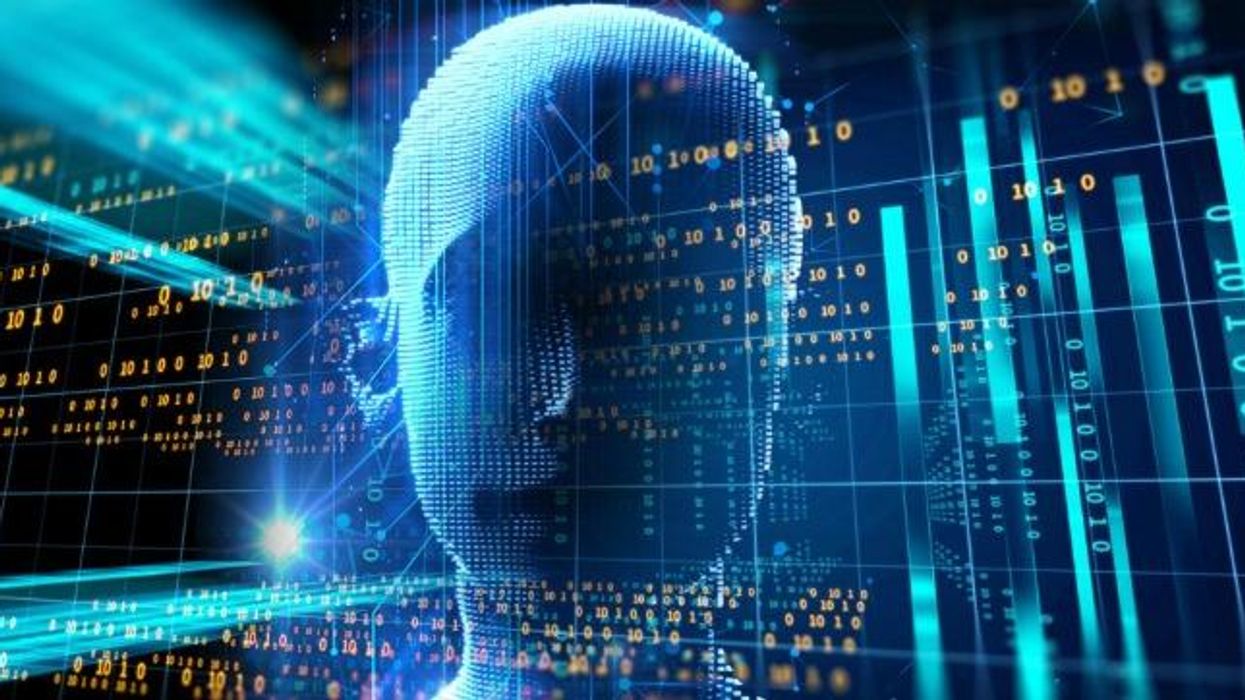Lead signatory Geoffrey Hinton, often called "the godfather of AI," has been sounding the alarm for weeks. Earlier this month, the 75-year-old professor emeritus of computer science at the University of Toronto announced that he had resigned from his job at Google in order to speak more freely about the dangers associated with AI.
Before he quit Google, Hinton told CBS News in March that the rapidly advancing technology's potential impacts are comparable to "the Industrial Revolution, or electricity, or maybe the wheel."
Asked about the chances of the technology "wiping out humanity," Hinton warned that "it's not inconceivable."
That frightening potential doesn't necessarily lie with currently existing AI tools such as ChatGPT, but rather with what is called "artificial general intelligence" (AGI), which would encompass computers developing and acting on their own ideas.
"Until quite recently, I thought it was going to be like 20 to 50 years before we have general-purpose AI," Hinton told CBS News. "Now I think it may be 20 years or less."
Pressed by the outlet if it could happen sooner, Hinton conceded that he wouldn't rule out the possibility of AGI arriving within five years, a significant change from a few years ago when he "would have said, 'No way.'"
"We have to think hard about how to control that," said Hinton. Asked if that's possible, Hinton said, "We don't know, we haven't been there yet, but we can try."
The AI pioneer is far from alone. According to the 2023 AI Index Report, an annual assessment of the fast-growing industry published last month by the Stanford Institute for Human-Centered Artificial Intelligence, 57% of computer scientists surveyed said that "recent progress is moving us toward AGI," and 58% agreed that "AGI is an important concern."
Although its findings were released in mid-April, Stanford's survey of 327 experts in natural language processing—a branch of computer science essential to the development of chatbots—was conducted last May and June, months before OpenAI's ChatGPT burst onto the scene in November.
OpenAI CEO Sam Altman, who signed the statement shared Tuesday by the Center for AI Safety, wrote in a February blog post: "The risks could be extraordinary. A misaligned superintelligent AGI could cause grievous harm to the world."
The following month, however, Altman declined to sign an open letter calling for a half-year moratorium on training AI systems beyond the level of OpenAI's latest chatbot, GPT-4.
The letter, published in March, states that "powerful AI systems should be developed only once we are confident that their effects will be positive and their risks will be manageable."
Tesla and Twitter CEO Elon Musk was among those who called for a pause two months ago, but he is "developing plans to launch a new artificial intelligence start-up to compete with" OpenAI, according toThe Financial Times, begging the question of whether his stated concern about the technology's "profound risks to society and humanity" is sincere or an expression of self-interest.
That Altman and several other AI boosters signed Tuesday's statement raises the possibility that insiders with billions of dollars at stake are attempting to showcase their awareness of the risks posed by their products in a bid to persuade officials of their capacity for self-regulation.
Demands from outside the industry for robust government regulation of AI are growing. While ever-more dangerous forms of AGI may still be years away, there is already mounting evidence that existing AI tools are exacerbating the spread of disinformation, from chatbots spouting lies and face-swapping apps generating fake videos to cloned voices committing fraud. Current, untested AI is hurting people in other ways, including when automated technologies deployed by Medicare Advantage insurers unilaterally decide to end payments, resulting in the premature termination of coverage for vulnerable seniors.
Critics have warned that in the absence of swift interventions from policymakers, unregulated AI could harm additional healthcare patients, undermine fact-based journalism, hasten the destruction of democracy, and lead to an unintended nuclear war. Other common worries include widespread worker layoffs and worsening inequality as well as a massive uptick in carbon pollution.
A report published last month by Public Citizen argues that "until meaningful government safeguards are in place to protect the public from the harms of generative AI, we need a pause."
"Businesses are deploying potentially dangerous AI tools faster than their harms can be understood or mitigated," the progressive advocacy group warned in a statement.
"History offers no reason to believe that corporations can self-regulate away the known risks—especially since many of these risks are as much a part of generative AI as they are of corporate greed," the watchdog continued. "Businesses rushing to introduce these new technologies are gambling with peoples' lives and livelihoods, and arguably with the very foundations of a free society and livable world."
Earlier this month, Public Citizen president Robert Weissman welcomed the Biden administration's new plan to "promote responsible American innovation in artificial intelligence and protect people's rights and safety," but he also stressed the need for "more aggressive measures" to "address the threats of runaway corporate AI."
Echoing Public Citizen, an international group of doctors warned three weeks ago in the peer-reviewed journal BMJ Open Health that AI "could pose an existential threat to humanity" and demanded a moratorium on the development of such technology pending strong government oversight.
AI "poses a number of threats to human health and well-being," the physicians and related experts wrote. "With exponential growth in AI research and development, the window of opportunity to avoid serious and potentially existential harms is closing."


